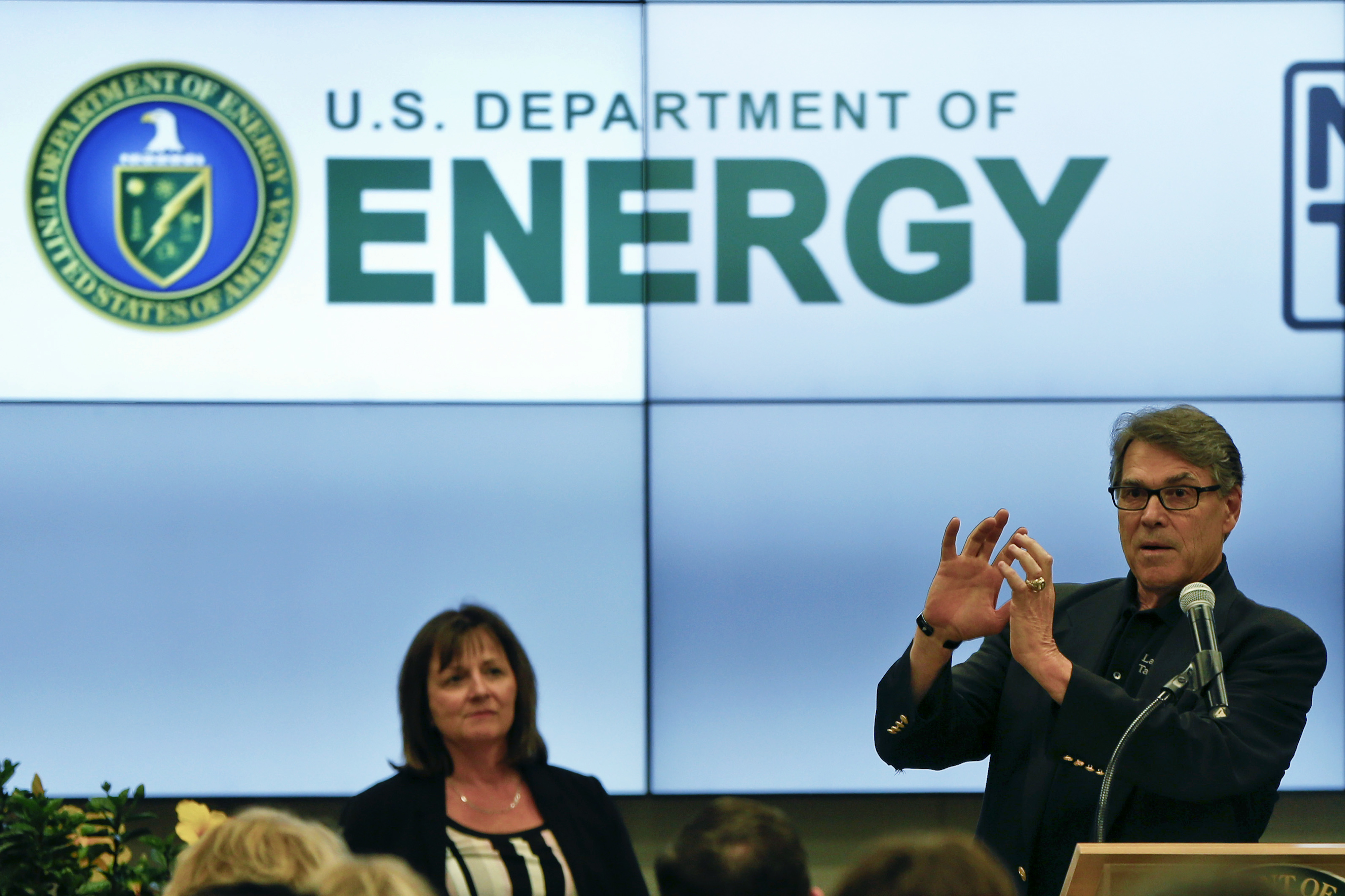It hasn’t been all smooth sailing for President Donald Trump as he seeks to gut environmental rules and standards. Federal courts have stood in his way at times over the past year, ruling in favor of environmental groups that are investing a significant amount of resources into stopping the implementation of the president’s anti-environment agenda.
The groups’ latest victory occurred in the U.S. District Court for the Northern District of California on Thursday when a judge ordered the Trump administration to end its hold on rules that would strengthen appliance energy efficiency standards.
Environmental groups, along with state attorneys general, viewed the decision to allow the implementation of the standards as an important step toward reducing greenhouse gas emissions and saving consumers money on their monthly utility bills.
Other legal victories over the past year include a federal court’s decision last October to reinstate a move by the Department of the Interior to delay compliance with rules curbing the burning off of leaking methane by oil and gas companies. That victory was short-lived, however, as the department published a rule in the Federal Register this week delaying the methane regulation.
In another triumph, the Environmental Protection Agency (EPA) reversed course on its plan to delay by one year enforcement of the Obama administration’s ozone pollution regulation. Public health and environmental organizations sued the EPA on July 12, and asked the D.C. Circuit Court to immediately strike down or block the delay. The EPA’s withdrawal of the delay came the evening before its response to the lawsuit was due.
At issue in the energy efficiency case were four standards — proposed by the Obama administration in late 2016 — that would lower greenhouse gas emissions by 99 million tons over 30 years, the equivalent of taking 705,000 cars a year off the road, and save consumers billions of dollars on their energy utility bills over that time period.
None of the standards were especially controversial, among both environmental groups and appliance manufacturers. And yet, Trump’s Department of Energy (DOE) delayed their implementation, creating regulatory uncertainty for manufacturers who require long lead times to incorporate new technologies into their products.
“The Trump administration’s baffling decision to block the final procedural step could have cost Americans $8 billion in higher energy bills and created uncertainty for U.S. manufacturers,” Kit Kennedy, senior director of the climate and clean energy program for the Natural Resources Defense Council (NRDC), said Thursday in a statement. “Today’s ruling reaffirms that the Trump administration must follow the laws designed to ensure America’s consumers and businesses aren’t forced to pay needlessly higher energy bills.”
The NRDC was one of several environmental and public interest groups that sued the DOE last June to force the department to implement the standards. Attorneys general in California and New York filed a separate lawsuit against the DOE, also accusing the agency of violating the law by refusing to implement the standards.
California Attorney General Xavier Becerra (D) said Thursday in a statement that his state will continue to hold the Trump administration accountable. “The stakes could not be higher,” he said, “climate change is the most important global environmental issue of our time. Our citizens have a right to be part of the climate change solution.”
In his first year in office, Becerra has stayed busy fighting the Trump administration. In 2017 alone, the California attorney general filed 25 environmental lawsuits against the administration. Becerra’s colleague in New York, Attorney General Eric Schneiderman (D), has brought more than 50 environment-related legal and administrative actions against Trump, including lawsuits that Becerra joined.
Most recently, Schneiderman led a coalition of 11 attorneys general, who filed a lawsuit against the Trump administration earlier this month for suspending the Clean Water Rule, a federal regulation designed to ensure the nation’s lakes, rivers, streams, and wetlands receive proper protection under the federal Clean Water Act.
In Thursday’s decision, U.S. District Judge Vince Chhabria ruled that the DOE had “breached” its duty under the Energy Policy and Conservation Act to publish the four energy efficiency standards in the Federal Register. The judge ordered the DOE to publish the standards within 28 days of the ruling.
The four standards aim to increase the energy efficiency of portable air conditioners, battery backup systems used to keep computers and other electronic devices running when the power goes out, air compressors used in a variety of commercial and industrial applications, and packaged boilers that heat one-fourth of the nation’s commercial space.
Federal law requires the DOE to set energy-saving standards for specific categories of appliances and then to update them every six years. According to the lawsuits, the department last updated its standards for commercial boilers in 2009 but has no current standards for the other appliances.
In its fall regulatory agenda, released in December, the Trump administration took 20 appliance standards that it had marked as “under review” in its spring regulatory agenda and moved them to a “long-term action” status. The Office of Management and Budget defines a long-term action as one in which no regulatory action is expected within the next 12 months.
The standards have historically enjoyed strong bipartisan support and demonstrated clear results. “It’s a long tradition of bipartisan support because these are standards that save consumers money,” Andrew deLaski, executive director of the Appliance Standards Awareness Project, told ThinkProgress. “Even if you don’t prioritize climate change or pollution reduction, these standards still make sense. They help to make our energy systems more resilient.”
In response to Thursday’s ruling, Becerra and Schneiderman noted their states have significant interests in increased energy efficiency and reduced energy use as they seek to reduce global warming’s impacts.
“Our coalition of attorneys general has made it clear that we’ll use every tool at our disposal to protect our public health, our environment, and consumers’ pocketbooks,” Schneiderman said. The court decision, he said, “is an important victory in fighting back against the Trump Administration’s ‘polluter first’ agenda.”


